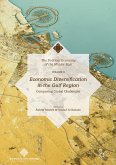This book tests many of the assumptions, hypotheses, and conclusions connected with the presumed role of civil society organizations in the democratization of African countries. Taking a comparative approach, it looks at countries that have successfully democratized, those that are stuck between progress and regression, those that have regressed into dictatorship, and those that are currently in transitional flux and evaluates what role, if any, civil society has played in each instance. The countries discussed-South Africa, Ghana, Nigeria, Ethiopia, Egypt and Tunisia-represent a diverse set of social and political circumstances and different levels of democratic achievement, providing a rich set of case studies. Each sample state also offers an internal comparison, as each has historically experienced different stages of democratization. Along the course of each case study, the book also considers the effect that other traditionally studied factors, such as culture, colonization, economic development and foreign aid, may have had on African civil society and democratization. The first extensive work on civil society and democratization in Africa, the book adds new insights to the applicability of democratization theory in a non-Western context, both filling a gap in and adding to the existing universal scholarship. This book will be useful for scholars of political science, economics, sociology and African studies, as well as human rights activists and policy makers in the relevant geographical areas.
Dieser Download kann aus rechtlichen Gründen nur mit Rechnungsadresse in A, B, BG, CY, CZ, D, DK, EW, E, FIN, F, GR, HR, H, IRL, I, LT, L, LR, M, NL, PL, P, R, S, SLO, SK ausgeliefert werden.









